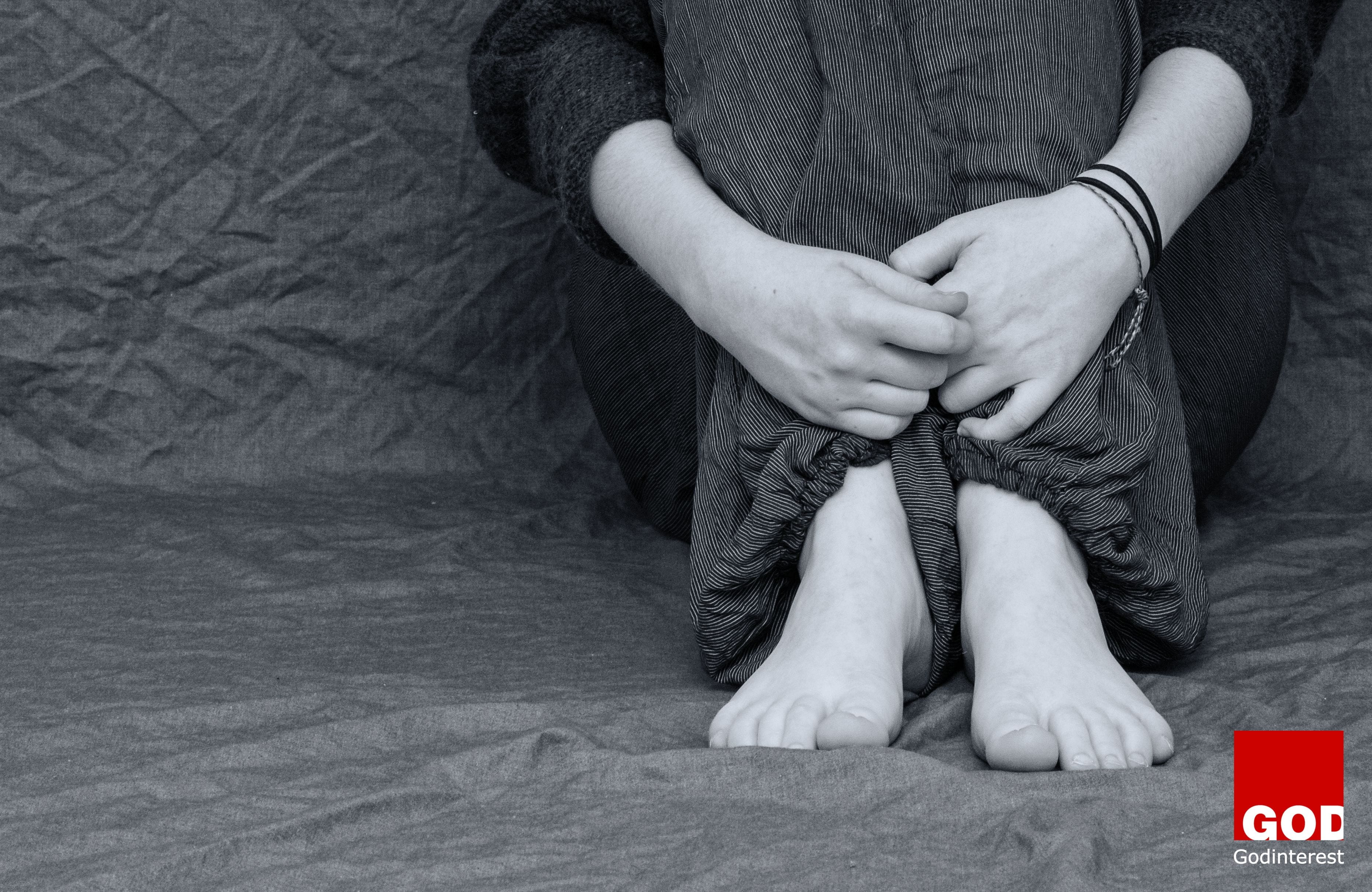When I saw Roger’s Facebook profile photo, my first reaction, if I’m honest, was that he wasn’t good-looking enough for me. Yet when he sent a message saying I was the most beautiful woman he’d ever seen, I gave into his invitation for dinner, she says in regret.
“According to a new survey of more than 1,600 divorcees, 49 percent admitted they were worried on their wedding day their relationship would break down, and two-thirds considered leaving their spouse-to-be at the altar.”
“A sixth said they hoped their partner would change after the wedding, while others said they got married in the hope that it would “all work out” in the end.”
Lord, I’m sorry! I married the wrong man. Please forgive me, she cries out in agonizing prayer.
No couple should expect bliss every day and most couples know that perfection is not on the cards. Nevertheless, there are couples who display such deep-seated incompatibility, such heightened rage and disappointment, that most people will conclude that something else is at play beyond the normal scratchiness: they appear to have married the wrong person.
How do such errors happen, in our enlightened, knowledge-rich times? To avoid becoming a “statistic,” try to internalize these 7 insights.
#1. You picked the wrong person because you expect him/her to change after you’re married.
Many Christians may assume that non-believers are more likely to marry the wrong person because they lack God’s guidance in finding their one true love. But not so fast. Unfortunately, the number of Christians divorcing is no lower than that of non-believers.
“Singles today (and most married couples too) are searching for super-spouses that simply don’t exist.”
Movie star Mickey Rooney said, “Marriage is like batting in baseball; when the right one comes along, you don’t want to let it go by.” It sounds good, until you realize that Mickey was married eight times. He must have had a lot of “good pitches” to swing at!
Mickey Rooney has what might be called the “needle in a haystack” view of picking a mate.
But you won’t find a “wrong needle” clause in the Bible that gives you an “out” if you conclude that your spouse isn’t right for you. Instead you’ll find in Malachi 2:15, “Do not break faith with the wife of your youth.”
Surprising to many, the Bible never tells us to find the one God has chosen. It tells us how to live with the person we have chosen. It’s easy to take our thoughts to the extreme when we’re so unhappy. But lets not forget that God says in the Bible says, “Come, let us reason together” (Isaiah 1:18). You didn’t marry a mind reader. Don’t fault him or her for that.
#2. You picked the wrong person because you focus more on chemistry than on character.
Many societies portray marriage as a temporary arrangement that can be adapted or forsaken at will. When first looking out for a partner, the requirements we come up with are coloured by a beautiful non-specific sentimental vagueness. All of us are crazy in very particular ways. All too many people say their vows without a real commitment to their spouse or to God.
Marriage is not primarily about finding the right spouse. It’s about being the right person. In his classic work, The Art of Loving, Erich Fromm declares, “To love somebody is not just a strong feeling—it is a decision, it is a judgment, it is a promise.
#3. You choose the wrong person because you do not share common life goals and priorities.
Biblically, a Christian should be looking to marry another believer who shares a similar commitment to following the Lord Jesus. Marriage to an unbeliever should be avoided (2 Corinthians 6:14). So, if a Christian marries a non-Christian, he or she may have indeed married the wrong person.
#4. You choose the wrong person because you got intimately involved too quickly.
“Do you know unmarried couples who attend church, have consensual sex, and may even live together? According to a recent study by the Barna Group,”
The Bible is filled with lots of info about sex, and believe it or not, God thinks it’s a great idea! And why shouldn’t He, He invented it and declared it to be “good.”
Many Christian couples also justify cohabitation with the rationalization that they are going to get married eventually. However, the Bible promotes complete abstinence before marriage. Sex between a husband and his wife is the only form of sexual relations of which God approves (Hebrews 13:4). Sex within marriage is pleasurable, and God designed it that way. God wants men and women to enjoy sexual activity within the confines of marriage.
If you believe Christ died on a cross for your sins and you are trusting in Christ alone for your salvation, Christ commands you to pick up your cross and follow him (Matt. 16:24). Sex outside of marriage is a sin, no matter how a person tries to interpret Scripture otherwise, and every Christian is called to obey God in this aspect of life. Jesus said.
Also consider this, if the Bible’s message on sex before marriage was obeyed, there would be far fewer sexually transmitted diseases, far fewer abortions, far fewer unwed mothers and unwanted pregnancies, and far fewer children growing up without both parents in their lives.
#5. You picked the wrong person because you didn’t put everything on the table.
Let’s start off with the big one. TRUST! When a spouse is persistently and relentlessly lying about dim-witted things, it causes worry and doubts to set up camp. The journey begins like this. A young man or woman identifies the person he or she wants to marry and begins the business of serious courtship. Time and money are no object. They have a worthy goal and are motivated, even if that means telling lies in the process.
“You look as beautiful today as the day I met you.” “Of course you don’t look fat in that.” “I’m not angry.” “I wasn’t looking at her, I was just noticing her boots.”
Legally, all you need for a wedding is a visit to the county clerk’s office, and whatever else your local government requires. Most weddings these days skip the garter toss; many skip the bridesmaids and groomsmen, and some even skip the flowers. But what matters most is that you tell the truth, the whole truth and nothing but the truth.
“If you tell the truth, it becomes part of your past, however, if you tell a lie, it becomes part of your future”. ~ Author Unknown”
Wow does that quote nails it, or what??!!
#6. You picked the wrong person because you use the relationship to escape from personal problems and unhappiness.
In many places in the world, a fantasy is promoted that marriage should meet all our needs—the emphasis being on meeting one’s own needs, not the needs of one’s spouse. However, people that are unhappy when single and expect marriage to fulfil their lives are greatly disappointed as their level of contentment will drop even lower when married. Unrealistic expectations are those demands you make of your spouse of which he or she is incapable of providing.
“When you’re single, you experience a range of contentment from low to high. However, when your married, that range becomes even wider in both directions. Greater contentment—or discontentment.”
God wants to destroy you, not the physical you, but the selfish you. Jesus taught us that if we don’t die to our selfish nature, we will never be able to experience all the blessings that God wants to bestow on us. Well, if there was ever an institution designed to kill the selfish you, it’s marriage. In fact, it is virtually impossible to succeed at marriage if you don’t learn how to let the selfish part of you die.
#7. You picked the wrong person because you did not consult with God
“I don’t think I can do any better. He or she said, It may sound clich, but if you don’t respect and love yourself, it will be difficult to respect and love another person.”
Surely we aren’t destined to fail. So maybe we have misunderstood the will of God. I know that sounds simplistic. Many people claim that is the problem with their marriage. If they could go back and press rewind, if they knew back then what they know now, they would have made different decisions. But remember that God promises us that if we ask, He will give. And while asking, request that the Holy Spirit guide you as your Wonderful Counselor (Isaiah 9:6).
How can a person prevent getting married to the wrong person?
The truth is, a successful marriage is not the result of marrying the “right” person, feeling the “right”emotions, thinking the “right” thoughts, or even praying the “right” prayers,
Instead, keep your eyes wide open before marriage, half shut afterwards,” is good advice (Poor Richard’s Almanac, June 1738), but even more helpful is to seek first the kingdom of God and His righteousness (Matthew 6:33).

















